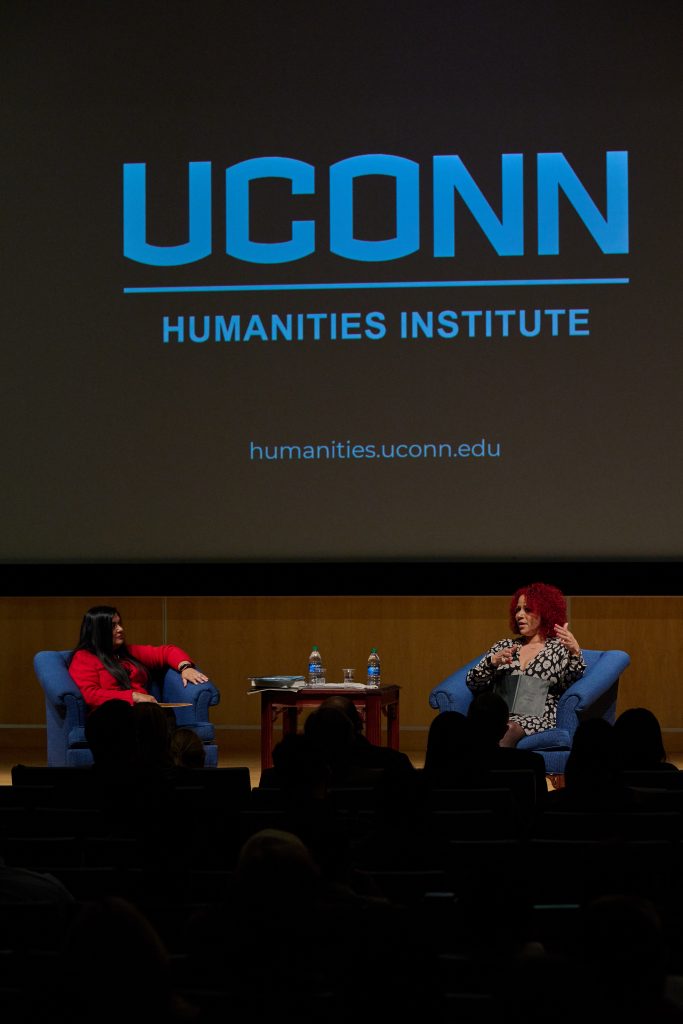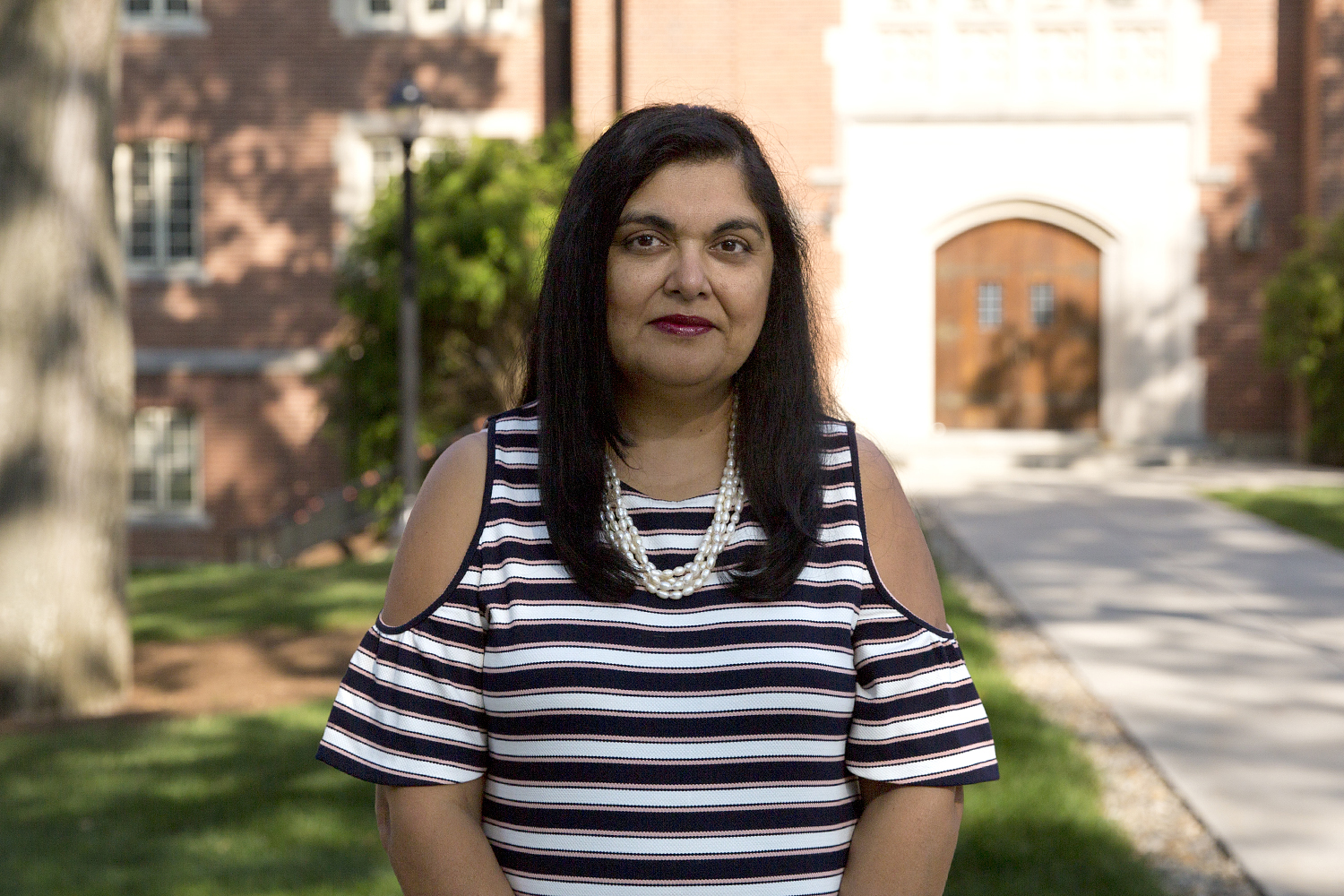UConn history professor Manisha Sinha is among 180 Guggenheim Fellows named last month, putting her in a prestigious category alongside only two dozen other UConn faculty members in the last 65 years.
The 2022 fellowship class comprises artists and scholars from throughout the United States and Canada and includes those whose expertise varies from the natural sciences to social sciences, humanities to creative arts. Sinha is one of five to receive awards for research in U.S. history and was among nearly 2,500 fellowship applicants.
“It’s a bit of a dream come true,” she says of the award. “I’m very appreciative of the support I’ve gotten from UConn, from the administration in particular.”
Sinha is the James L. and Shirley A. Draper Chair in American History in the College of Liberal Arts and Sciences, a position she’s held since 2016 after coming to UConn from the University of Massachusetts, Amherst.
During the next two semesters, she will continue work on a book project on Reconstruction that was started several years ago and looks at how the South was admitted back into the Union after the Civil War.
“I give a lot of attention to the traditional story, but I connect it to other issues like the fight for women’s suffrage,” she says of the book. “I connect it to Western history and the subjugation of the Plains Indians. I also look at the unwinding of Reconstruction when the federal government gave up on enforcing Black rights in the South. That gave rise to the Jim Crow South when Black men were disenfranchised, and racial segregation and racist terror and lynching became commonplace.”
It’s an ambitious project, she admits, but one that came with support from a fellowship with the Radcliffe Institute for Advanced Study at Harvard University and a Mellon research fellowship through the American Antiquarian Society.
What makes it unique, she says, is the expanded time period studied – 1860 to 1900 vs. the usual 1865 to 1877 – and the links drawn between Reconstruction and other societal issues of the day.

“Even though I’ve done a lot of primary research for this book, there’s been a lot of scholarship that’s come out on the women’s suffrage movement, on Native American history and Western history that I can piggyback off of,” Sinha says. “That’s what historians do; we do our own research but it’s really a combined effort when you want to tell a big story of a certain period. You really benefit from the other work other historians have done on smaller parts of your project.”
In 2019, Sinha hosted a conference at UConn drawing international experts to look at Reconstruction, the result of which will be an anthology she also expects to edit over the next year. While working on the Reconstruction book, she’s shelved a Yale University Press project on abolition, something she says she may resume if time allows.
For now, it’s Reconstruction that has her attention.
“Historians are always influenced by the times that we write in,” she says, explaining an earlier book she wrote on abolition was done during the Obama administration when the country’s mood was hopeful. “This book on Reconstruction came out of the last few years politically.”
During the Trump administration, at least one journal article she wrote went viral, Sinha says, because it suggested the country was backsliding in its democratic principles and civil rights and immigration policies.
“It really reminded me of the Reconstruction period when there was a real backlash to Reconstruction and you had this huge reaction that led to the Jim Crow South and disenfranchisement,” she says. “It’s not as if history is repeating, but there were some parallels in the way some events unfolded. You have progress and backlash, progress and backlash.”
She says she’s also been influenced by her undergraduate students who tell her they understand Reconstruction when she talks about it in class, but the companion readings confuse them.
For their sake and because the Reconstruction book comes from commercial publisher Liveright Norton, she says, “One of my aims is to not write a huge book, which is tough because it’s a very big topic. I want to write one that’s accessible to a broader audience.”
“This year marks the Foundation’s 97th annual Fellowship competition,” says Edward Hirsch, president of the Guggenheim Foundation and 1985 fellow in poetry. “Our long experience tells us what an impact these annual grants will have to change people’s lives. The work supported by the Foundation will aid in our collective effort to better understand the new world we’re in, where we’ve come from, and where we’re going.”



